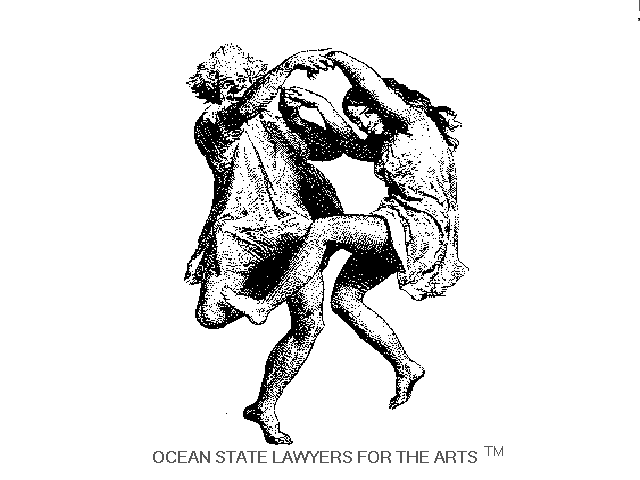copyright 2001 David M. Spatt, All rights reserved
Reproduction is prohibited without the express written consent of the author

"I just completed an artwork (or logo) for a client, which they specificallycommissioned. Now the client says that I did not do it rht and won't pay me (or wants their money back). The client says that they do not not have to pay if they are not satisfied with my work. Is that true?"The general rule in contract cases is that if customer satisfaction is not a specified term in the agreement (either oral or written), then the contractor (or artist) gets paid as long as the contract was actually entered and the work was done in compliance with the terms of the agreement. This is the rule in Rhode Island, as well.
EXCEPTIONS:
If there is some reason to believe that the client must be satisfied or no payment is due, then the artist had better make them happy, or else. Such a reason would include that such satisfaction was a specified term in the agreement. It could also be implied by legalese terms like "prior course of conduct" or "custom and usage in the trade." The first term means that if the parties have dealt with each other in the past, and customer satisfaction was implied in those past dealings, then that would be evidence that it was implied this time, also.
Custom and usage in the trade says that where a certain term is generally implied in contracts in a particular trade or industry, then contracts within that trade or industry may generally have that term implied even if it is not specified.
One of the leading cases on these issues is, amazingly, a Rhode Island case. The case of Pennington V. Howland, 21 R.I 65, 41 A. 891 (1898). In this case, the court said that the customer's satisfaction must be a specified term in the agreement. The part of this decision that is BAD for artists is the definition of what "satisfaction" means. It follows the general rule that, if the client is not satisfied for whatever reason, then the cleint is not obligated to pay for the work.
In some states, the court would look at whether a reasonable person would be satified. THIS IS NOT THE RULE IN MOST STATES OR IN RHODE ISLAND. One way around this problem is that, when negotiating a contract, if the client insists that satisfaction be a condition of payment, have the agreement state that "the work must be reasonably satisfactory" or "the client must be reasonably satisfied. These words will probably bring the contract under the rule that if a reasonable person would have been satisfied with the work, then it does not matter whether your particular client is actually satisfied.
One GOOD part of the Pennington case is that if the client did some act that showed acceptance of the artwork, such as taking delivery of it and not returning it, that would obligate them to pay even if there was a staisfaction clause. The idea is that if they accepted it, it can be presumed that it was satisfactory. The client might not be able to change their mind later and say that is was not satisfactory. Of course, what constitutes acceptance of work is a question of fact to be proven to a judge or jury.
In case you, good reader, were wondering, in the one case that I actually had to go to trial on this issue in a Rhode Island court, the court agreed with my interpretation of Pennington, saying that if satisfaction was not a specified term in the agreement for logo design, the artist is entitled to payment as long as she did the work that was asked of her. Especially since the client had committed acts which evidenced acceptance of the work.
WHEN NEGOTIATING CONTRACTS OR
INTERPRETING
CASE-LAW OR STATUTORY LAW, SOUND ADVICE SHOULD BE OBTAINED FROM A
COMPETENT
ARTS OR ENTERTAINMENT ATTORNEY.
THIS WEBSITE CANNOT BE USED AS A SUBSTITUTE FOR SOUND LEGAL ADVICE FROM A COMPETENT ARTS OR ENTERTAINMENT ATTORNEY. In the event of a legal problem or question, specific legal consultation is advised. This website is intended only as a means of educating arts organizations and artists of all disciplines as to their potential legal rights and liabilities. The information provided is made available with the understanding that neither OSLA nor the office of David M. Spatt is engaging in the rendering of legal counsel.
copyright 2001 David M. Spatt, All rights reserved
Reproduction is prohibited without the express written consent of the author
